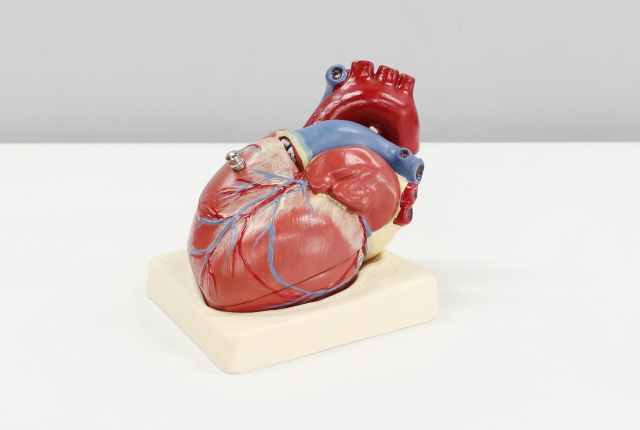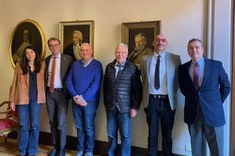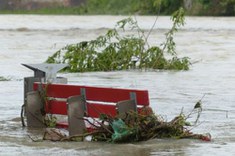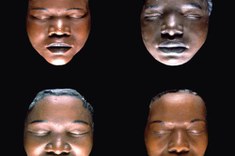Heart regeneration: the key role of a growth factor has been discovered

An international research team, coordinated by academics from the University of Bologna and the IRCCS - Policlinico Sant’Orsola Hospital, has identified a key growth factor capable of exerting a proliferative and regenerative effect on cardiac muscle cells. The research, published in the journal Cell Reports, paves the way for potential new therapies to regenerate damaged hearts.
Cardiac injuries, such as those caused by myocardial infarction, infection or certain cancer therapies, results in a substantial loss of cardiac muscle cells, which are replaced by fibrotic scar tissue. Due to the extremely limited regenerative capacity of the heart, this condition often leads to heart failure.
However, we know that mammals, up to the moment of birth, are able to regenerate the heart, even following severe damage. It is only in the neonatal period that the cardiac muscle cells, cardiomyocytes, specialise to adapt to life outside the womb, permanently losing their ability to regenerate.
In order to find a strategy that could allow cardiac muscle cells to regain this regenerative ability, the researchers sought to identify growth factors whose production is reduced or switched off in the immediate postnatal period.
"We hypothesised that the loss of regenerative capacity in the early postnatal period is at least in part a consequence of reduced production of growth factors", explains Gabriele Matteo D'Uva, professor at the Department of Medical and Surgical Sciences at the University of Bologna who coordinated the study. "In preclinical mammalian models, we observed that expression levels of various cardiac growth factors decline rapidly after birth, in parallel with the loss of the regenerative capacity of cardiomyocytes."
Based on this observation and following a series of studies on neonatal cardiomyocytes, the researchers then discovered that some of these growth factors are able to promote cardiomyocyte proliferation.
"In particular, BMP7, a member of the family of bone morphogenetic proteins (BMPs), showed the most significant effects in promoting the proliferation of cardiac muscle cells at the neonatal stage," adds Chiara Bongiovanni, PhD student in Surgical Sciences and Innovative Technologies at the University of Bologna and first author of the study.
Further confirmation also comes from zebrafish: an animal model with a spontaneous ability to regenerate the heart after injury. Again, inhibition of BMP7 reduced cardiomyocyte regeneration following cardiac injury, whereas its induction accelerated the regeneration process.
The study then investigated whether the administration of BMP7 in preclinical mammalian models (mice) could also induce cardiomyocyte proliferation even in later stages of life, when cardiomyocytes are more refractory to cell cycle re-entry and proliferation.
"The tests showed that treatment with BMP7 is able to stimulate cardiomyocyte proliferation even in the adult phase, and even more effectively after myocardial infarction," adds Gabriele D'Uva. "These results suggest that the administration of this factor could represent a new therapeutic strategy to promote cardiac regeneration: if validated in humans, it could have a significant impact on the treatment of heart disease, one of the major cause of morbidity and mortality worldwide."
The research team behind the study is now focusing on testing synergistic combinations with other stimuli to develop even more effective strategies for tissue and organ regeneration.
The study was published in the journal Cell Reports under the title 'BMP7 promotes cardiomyocyte regeneration in zebrafish and adult mice'. The research was coordinated by Gabriele D'Uva, professor at the Department of Medical and Surgical Sciences of the University of Bologna, who carries out research at the IRCCS - Sant'Orsola Polyclinic Hospital. A significant contribution was made by researcher Chiara Bongiovanni. Groups led by Prof. Mattia Lauriola and Prof. Carlo Ventura, also from the Department of Medical and Surgical Sciences at the University of Bologna, also collaborated on the project. Further analyses were carried out in collaboration with research groups coordinated by Professors Eldad Tzahor (Weizmann Institute of Science, Israel), Gilbert Weidinger (University of Ulm, Germany) and Stephan Heermann (University of Freiburg, Germany).
The project was supported by national and international funding, including funds from the National Recovery and Resilience Plan through the Extended Partnership on Innovative Diagnostics and Therapies in Precision Medicine and current research funds. The research is part of the new PERFUSION AND ORGAN REGENERATION platform - RESTORE (RESearch on cell, Tissue and Organ REgeneration), which was recently set up. The intention was to create a synergy between the clinical operating units working on perfusion and organ transplantation at the IRCCS Policlinico Sant’Orsola Hospital and the basic, translational and multidisciplinary scientific research units in the areas of cell and molecular biology and cell and tissue regeneration at the University of Bologna. This would help to develop translational research in organ perfusion, regeneration and transplantation to support the 'Assistance and research for transplants and critically ill patients', which is one of the two areas for which the Policlinico Sant'Orsola Hospital has been accredited as a Scientific Institute for Research, Hospitalization and Healthcare (IRCCS).






